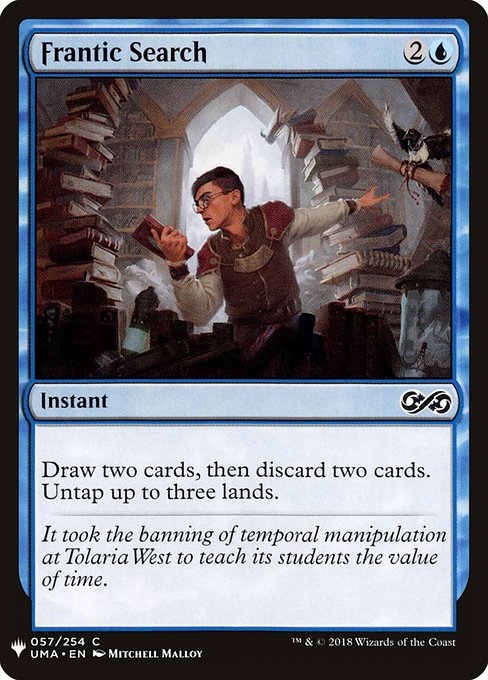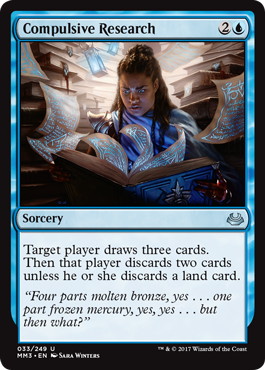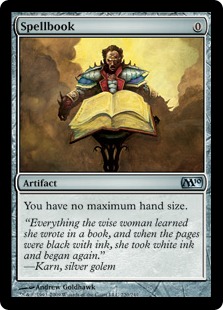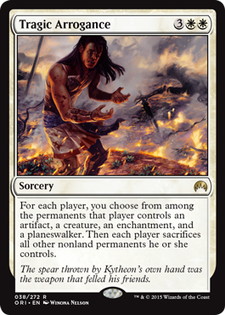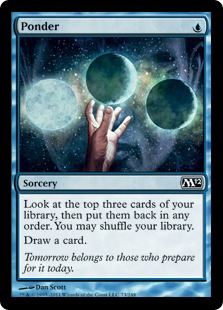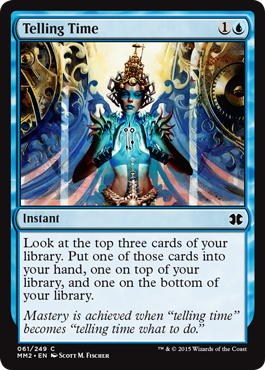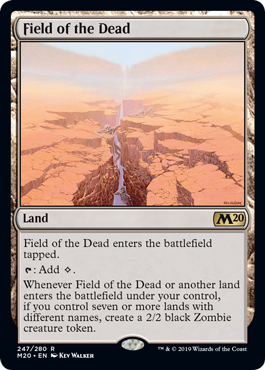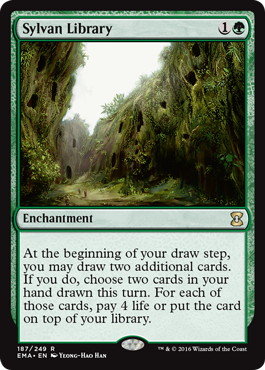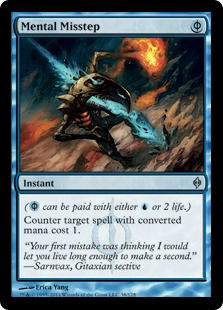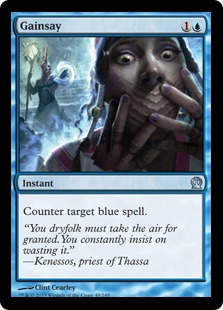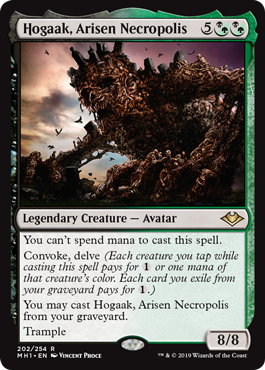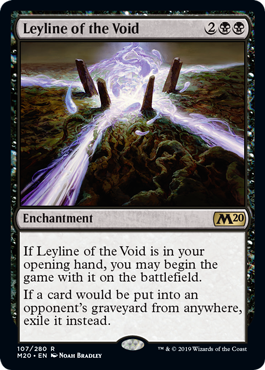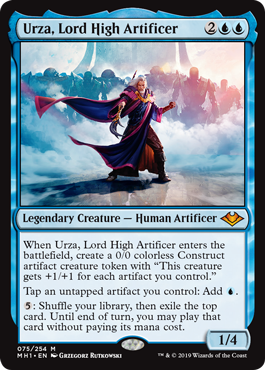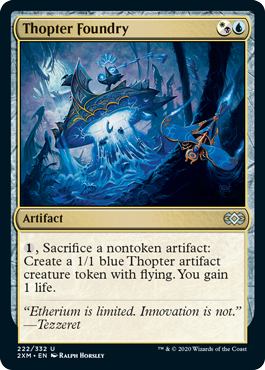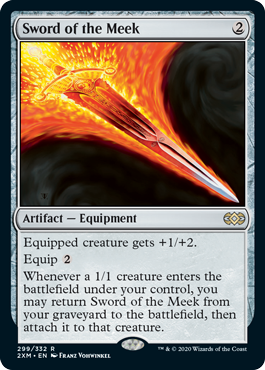Introduction
Hello, hope you are all good!
As the title is already saying, today I will be talking about how to prepare for different formats, or at least how I did. Due to Covid-19 most real-life tournaments are being cancelled, but some of them are being held online.
One of them was Eternal Weekend, featuring a weekend full of Legacy and a second weekend full of Vintage. To make it accessible to everyone, every registrant would get a fully stocked account for 8 days.
Right after Eternal Weekend there is a weekend full of Players Tour Qualifiers featuring Standard, Modern and Pioneer.
As you can see, there is not much time to prepare and playing almost every format at the same time for the whole time is close to impossible.
Two Steps For Preparation
Step 1: Research the Metagame
Given not much time and assuming card availability is not a problem, the way I prepare for a format is almost always the same.
First, I start looking at all kind of deck lists and how the metagame has been evolving lately. This step can easily be done without playing a single game of magic and in my opinion, this step should not come too short. You might be able to find the perfect deck for a weekend just by looking at data.
Step 2: Play Some Games While Taking Notes
My next step is to just jam some games. In case I found the deck, I believe to be the deck to play, I will just start with it and see how it goes. Most of the time this will sadly not be the case and one must play multiple decks.
The important part here, besides finding the correct deck for a tournament, is to take notes. Do not only take notes of your win rate, take notes of almost anything. As an example, I take notes of: Play/Draw, opponents deck choice, how I side boarded, which cards felt unnecessary and/or were missing and even more notes.
I do understand that time is of importance here and that step sounds like a waste of time, but setting up a simple Excel sheet and taking notes is not as time consuming as you might think.
Just to give you a recent example, in which I skipped this step and it might have cost me: A few weeks ago I wanted to play a modern Players Tour Qualifier and jammed a single League on Magic Online with a deck and registered it.
I managed to top 8, but after just a few rounds I noticed, that there was one sideboard card that I boarded in no matter the matchup. Imagine I would have not skipped Excel and played more than a single League on Magic Online. This card would have been mainboard afterwards, I can promise you that.
I usually try to find 2-3 decks I like and to play at least 2 Leagues with each of them. After that I should be able to decide on which deck, I would like to focus. Once again, my notes will help me, as I will see what cards over/underperformed and which match ups need help. To refine my deck, I usually leave myself about 2-3 days.
These were just the steps to fast forward to a deck for a single tournament, but there are other very important steps behind the scenes.
Time Management
One important step is your very own time management. Once again I will take myself as an example.
Usually I know a week ahead about a tournament, so it is simple to make such a schedule. I will first fulfill all my real-life duties, such as work and university and after I am done with those, I will try to play about 2-3 leagues per day. I always plan about 8-9 hours of sleep and at least 30 minutes for every meal.
Obviously there are some exceptions, where you need to be more flexible. As an example, I would like to shortly talk about Eternal Weekend.
I knew that the first tournament would start at 9 am and the second one at 11 pm, both on the same day. I expected about 9-10 rounds for each of them. Instead of sleeping from 11 pm, I would need to play, so what I did was to sleep 4 hours before 11 pm and after the tournament was done, I slept again for 4 hours.
Speed of a Format
To better explain what I mean, let’s just look at these sample deck lists for the format Pioneer, Modern, Legacy and Vintage. These are all control decks in their format from my point of view.
- yutya
- – Dimir Control
- Pioneer League 2020/10/22
- (5-0)
2 《Swamp》
3 《Fabled Passage》
4 《Watery Grave》
3 《Fetid Pools》
4 《Drowned Catacomb》
2 《Castle Locthwain》
1 《Castle Vantress》
3 《Field of Ruin》
-Land (26)- 2 《Torrential Gearhulk》
-Creature (2)-
2 《Fatal Push》
4 《Censor》
2 《Negate》
1 《Eliminate》
4 《Sinister Sabotage》
1 《Hero’s Downfall》
2 《Extinction Event》
2 《Rewind》
1 《Glimmer of Genius》
1 《Vraska’s Contempt》
4 《Dig Through Time》
4 《Shark Typhoon》
-Spell (32)-
2 《Fatal Push》
2 《Aether Gust》
2 《Cry of the Carnarium》
1 《Brazen Borrower》
1 《Notion Thief》
1 《Heartless Act》
1 《Negate》
1 《Extinction Event》
1 《Enter the God-Eternals》
-Sideboard (15)-
- Zar0s
- – 4C Land Control
- Modern Preliminary – #12221089
- (4-1)
1 《Island》
1 《Mountain》
1 《Forest》
1 《Snow-Covered Island》
1 《Snow-Covered Forest》
1 《Ketria Triome》
1 《Raugrin Triome》
1 《Breeding Pool》
1 《Hallowed Fountain》
1 《Steam Vents》
1 《Stomping Ground》
1 《Temple Garden》
4 《Flooded Strand》
4 《Misty Rainforest》
3 《Scalding Tarn》
1 《Mystic Sanctuary》
2 《Field of Ruin》
2 《Field of the Dead》
-Land (29)- 4 《Uro, Titan of Nature’s Wrath》
2 《Omnath, Locus of Creation》
-Creature (6)-
- Slasher21
- – Snowko
- Legacy Challenge #12223587
- (5-1)
2 《Snow-Covered Forest》
1 《Snow-Covered Plains》
1 《Snow-Covered Swamp》
1 《Tropical Island》
1 《Tundra》
1 《Underground Sea》
1 《Volcanic Island》
4 《Misty Rainforest》
2 《Polluted Delta》
2 《Prismatic Vista》
1 《Flooded Strand》
1 《Karakas》
-Land (20)- 4 《Ice-Fang Coatl》
3 《Uro, Titan of Nature’s Wrath》
-Creature (7)-
- BagelsvilleUSA
- – Jeskai Control
- Vintage League 2020/11/01
- (5-0)
4 《Volcanic Island》
3 《Tundra》
3 《Flooded Strand》
3 《Scalding Tarn》
2 《Polluted Delta》
1 《Mystic Sanctuary》
-Land (17)- 1 《Ancestral Recall》
1 《Time Walk》
1 《Black Lotus》
1 《Mox Pearl》
1 《Mox Sapphire》
1 《Mox Ruby》
-Power 9 (6)- 2 《Lavinia, Azorius Renegade》
2 《Snapcaster Mage》
1 《Monastery Mentor》
1 《Niv-Mizzet, Parun》
-Creature (6)-
2 《Lightning Bolt》
2 《Pyroblast》
1 《Brainstorm》
1 《Flusterstorm》
1 《Gitaxian Probe》
1 《Mental Misstep》
1 《Mystical Tutor》
1 《Ponder》
1 《Shattering Spree》
1 《Swords to Plowshares》
1 《Abrade》
1 《Force of Negation》
4 《Force of Will》
1 《Gush》
1 《Dig Through Time》
1 《Treasure Cruise》
2 《Dack Fayden》
1 《Narset, Parter of Veils》
1 《Teferi, Time Raveler》
1 《Chandra, Torch of Defiance》
1 《Jace, the Mind Sculptor》
-Spell (31)-
Let’s just compare the land count for each deck and the converted mana cost for some stuff.
The Pioneer control deck plays 26 lands. Except for 2 《Torrential Gearhulk》, everything else costs 4 or less mana and some of your lands can cycle or do something.
The Modern control deck plays 29 lands. It does not need to reach as much mana, but 《Field of the Dead》 demands 7 different lands in play, which explains the high land count. Without 《Field of the Dead》, this deck would probably also play around 25-26 lands.
The Legacy control deck plays 20 lands. That is a big difference to the two previously seen decks, but why is that? Well, in Legacy your curve is not as high and you have a lot of looks at your deck with cards like 《Ponder》, 《Brainstorm》 and 《Sylvan Library》.
The Vintage control deck plays the least lands. Once again you have a lot of looks at your deck and the mana curve is even lower than in Legacy.
But what has all this to do with the speed of a format? Looking at the mana curve, one could see when all the action is going to happen approximately.
In Vintage for example, it is possible that the game is decided on turn 1 and you must be ready for that. On the other hand, you have Pioneer, in which you will play at least until turn 4, most likely even longer.
Playing in different formats also implies to understand when most of the action is going to happen and looking at the mana curve and land count will let you make an educated guess, which you should have in mind while playing in a specific format.
Play to Your Strength
I often hear how players discuss what to play and the discussion usually end with something like: but this is the best deck, just play it.
Saying that there is a best deck and one must play it, I cannot recall how often I have heard that (and not followed word). From time to time it might be right to say so, but most of the time it is just incorrect to play the best deck in the format.
Please just exclude decks here that got banned a few weeks later in the last 2 years, because that happened way too often and hopefully will not be the new normal.
Back to my point, in my opinion it is not always correct to play the so to say best deck in the format. The difference in win rate of the best deck and the second-best deck is usually about 5% overall.
If you can play the best deck to 70% perfection but feel way more comfortable with the second best deck, which you could play to 95% perfection, this means you should probably play the second best deck.
Want an example? Mythic Championship in Barcelona. Modern Horizons 1 just released and the constructed format for the tournaments was Modern. Not much time was needed to find 《Hogaak, Arisen Necropolis》 and how to build the best deck.
This deck was so good, that people started playing 《Leyline of the Void》 mainboard. In fact, it was the most played card at this tournament and sold out at every vendor.
I did not play Hogaak. Testing with my friends we concluded that 《Urza, Lord High Artificer》 and the infinite combo with 《Thopter Foundry》 and 《Sword of the Meek》 was our deck to play. It was not the best deck, but it had a fine match up against the best deck and was also good positioned overall in our opinions.
We felt way more comfortable piloting this deck and it showed: a friend made top 8 of the Mythic Championship and I lost my win and in for the top 8 at the Grand Prix next door.

Guillaume Wafo-Tapa(left),Craig Wescoe(right)
Image Copyright : Wizards of the Coast
Playing to your strength could even go as far as playing only one kind of deck. Take Guillaume Wafo-Tapa who plays mostly control decks or Craig Wescoe who plays only aggro decks, as examples. Both are very good players and although only playing one kind of deck, they are still winning a lot.
Do not fear to just say no to the best deck and play what fits your playstyle better, to get the most out of your deck choice.
Conclusion
That is it for me for today.
I hope I was able to help you to have a better preparation process for your next tournament, that is just around the corner. Stay safe and until next time,
Immanuel Gerschenson (Twitter)



